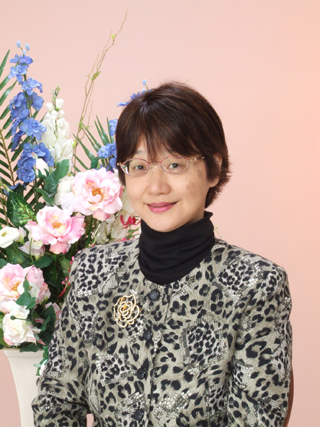Keiko NITTA
Professor, College of Arts, Rikkyo University
【The article below is the same as the article that appears in the fifteenth issue of the CGS Newsletter.】
Kazuko Takemura, a pioneer in the field of gender and sexuality studies in Japan, passed away on December 13, 2011. Professor Keiko Nitta of Rikkyo University pays tribute to her mentor and friend in this eulogy.

The Japanese phrase "shi no senaka ni manabu" (learn from the back of one's mentor, i.e., by emulation) may seem rather quaint and old fashioned today, but it inevitably springs to mind when I think of Kazuko Takemura. She led by example and is considered by many as a mentor in terms of her life and her work, even though they may not have attended her lectures or studied under her guidance. Kazuko inspired and, perhaps also enabled, us to feel this way about her.
However, when were we given permission to think or feel this way? We have no way of determining whether it is appropriate to call someone a mentor or a friend if we don't do so directly and receive acknowledgment from them. Even if I were to harp on about someone "in my eyes," behind my apparent sincerity there would linger the inescapable doubt that it may only be a form of egocentric exhibitionism. So just what were we able to learn from one whom we desired to call a mentor?
Six months after Kazuko left us, I finally realize the pain and sorrow of loss, as well as the desolation, shame, and responsibility of having survived. Yet as I struggle to face this incomparable loss, I see life more clearly, and I see the figure of Kazuko, who researched and wrote about English literature to shed more insight on life. Even though mindfulness of death provides an ethical foundation, it must also provide meaning for the living. Is that not a fundamental tenet of literary criticism? Literary criticism, in fact, was the subject of Kazuko's last work, which she completed from her sickbed.
If one does not plan to live tomorrow, there should be no need to read books to understand fiction or an "other" that is removed from oneself. Literature is not for the dead but for those who survive "exceptional circumstances" such as disaster, war, and fierce oppression. The power of the other to break the self-destructive cycle of despair, resignation, and cynicism: Kazuko bequeathed to us this hope, which she dubbed "literary power."
In the final chapter of her last work, Bungakuryoku no chôsen--Famirî, yokubô, terorizumu [The Challenge of Literary Power--Family, Desire, and Terrorism] (Kenkyūsha, 2012), Kazuko wrote, "How is my writing about sexuality linked to the fact that I am a scholar of English literature?" Being an uncommon reader of Freud and an authoritative commentator on the work of Judith Butler, she must have considered sexuality always in terms of a resurrection after the dead and denied have been forgotten. The sexuality represented by an individual life is, in a sense, the phenomenon of survival after mourning the remnants of a sexuality/life that has been lost. If so, literary questions about life cannot be considered without first quashing the violence or killing that is suppressed in life.
The phenomenon of "survival" refers to a life that leads directly from the death of someone else. We live on by leaving Kazuko behind.... Awakening in the morning, I cannot help but ask myself again what this means.